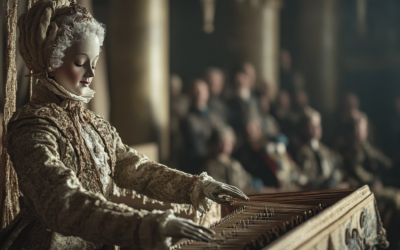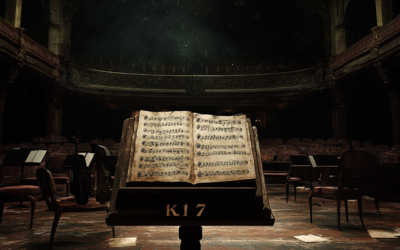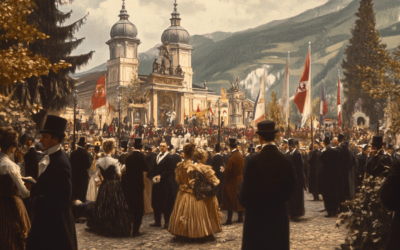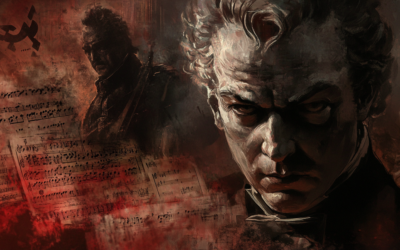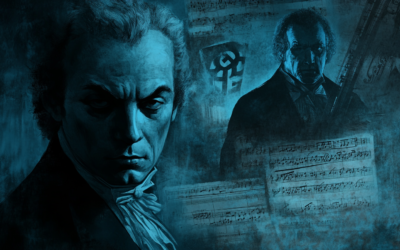Our Journal
Exploring the Evidence
The Fabricated Childhood of Mozart
The legend of young Mozart’s divine genius crumbles under scrutiny, revealing a childhood dictated by Leopold’s ambition, carefully constructed myths, and a relentless pursuit of fame at the expense of genuine artistic education.
The Man Behind the Myth
Leopold Mozart’s legacy has been shaped by myths and hagiographies, but his letters reveal a man more concerned with financial gain and self-promotion than artistic integrity. Was he truly a devoted father, or simply an opportunist?
Constanze vs. The Catholic Church
For over two centuries, scholars have debated the circumstances surrounding Mozart’s burial. Constanze Mozart’s supposed inability to mark his grave, the confrontation with the Catholic Church over funeral masses, and the baffling disappearance of Mozart’s body all contribute to a mystery stranger than fiction. Did a powerful group keep her silent? And what really happened to Mozart’s remains?
Constanze Mozart’s Enduring Love
Although some have doubted her devotion, Constanze’s own words and actions illustrate a widow deeply committed to preserving Mozart’s legacy. Diaries, personal correspondence, and eyewitness testimony all challenge the notion that she neglected his memory—while the circumstances around his burial grow ever more perplexing.
A Revealing New Interview on His Thematic Catalogue
We’re excited to present a brand-new interview that challenges many of the long-held assumptions about Mozart’s Thematic Catalogue (1784–1791). Conducted by Swedish journalist Henry Grynnsten, this conversation delves into groundbreaking forensic techniques—like advanced ink analysis and digital image processing—that may change the way we view Mozart’s late works.
The Rattling Symphony: A Critical Take on K. 17
Often attributed to Mozart, the K. 17 symphony is anything but refined. Lacking orchestration and filled with gaps, it raises more questions than answers about its true authorship.
The Hidden Origins of the Salzburg Festival: A Nationalist Dream
The Salzburg Festival, far from being a mere celebration of Mozart’s genius, was born out of nationalist ambitions during a turbulent period in Austro-German history. Conceived by figures like Max Reinhardt, Heinrich Damisch, and Friedrich Gehmacher, the festival was deeply rooted in ultranationalistic ideals, transforming Mozart’s legacy into a tool for cultural dominance. The truth behind its founding has long been obscured, but the primary sources tell a different, darker story.
Mozart, Wagner, and the Nazi Myth
The Führer’s admiration for Wagner’s racially charged ideology not only influenced the policies of the Nazi regime but also reshaped the legacy of Mozart. Under National Socialism, Mozart was not celebrated as a universal genius but as a symbol of German purity and superiority. His music, stripped of its international influence, was rebranded as an expression of Aryan identity, intended to unify and inspire the German people.
Mozart, the Anschluss, and Nazi Propaganda
Following the 1938 Anschluss, the Nazi regime rebranded Mozart as the quintessential German composer, using his image to promote unity between Austria and Germany. The Salzburg Festival became a platform for Nazi propaganda, distorting Mozart’s legacy to fit their nationalistic and racial agenda.

